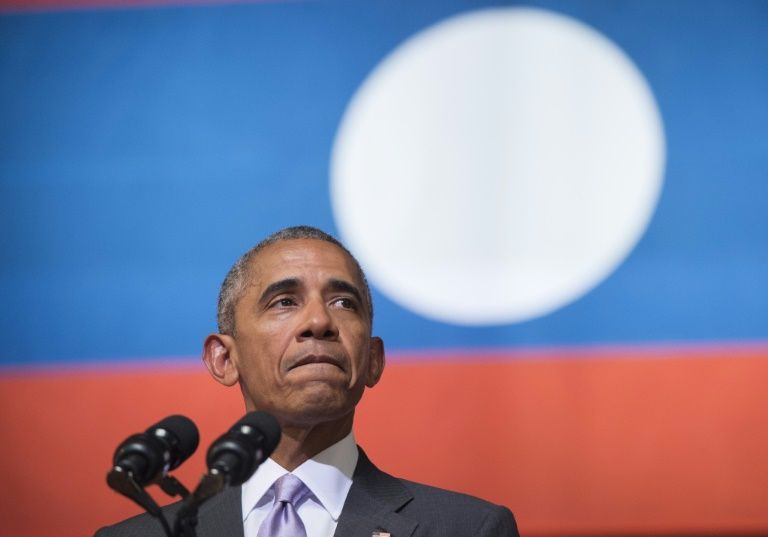-
Tips for becoming a good boxer - November 6, 2020
-
7 expert tips for making your hens night a memorable one - November 6, 2020
-
5 reasons to host your Christmas party on a cruise boat - November 6, 2020
-
What to do when you’re charged with a crime - November 6, 2020
-
Should you get one or multiple dogs? Here’s all you need to know - November 3, 2020
-
A Guide: How to Build Your Very Own Magic Mirror - February 14, 2019
-
Our Top Inspirational Baseball Stars - November 24, 2018
-
Five Tech Tools That Will Help You Turn Your Blog into a Business - November 24, 2018
-
How to Indulge on Vacation without Expanding Your Waist - November 9, 2018
-
5 Strategies for Businesses to Appeal to Today’s Increasingly Mobile-Crazed Customers - November 9, 2018
North Korea’s missile tests to intensify its world-isolation
North Korea on Wednesday rejected a UN Security Council statement condemning the reclusive state for its latest missile tests and threatening to take “further significant measures”. The U.N Council strongly condemned recent launches and said they were violating the ban on ballistic missile activity.
Advertisement
Tuesday’s statement ended with a commitment to “closely monitor the situation and take further significant measures in line with the Council’s previously expressed determination”. Beijing and Pyongyang have traditionally been “as close as lips and teeth”, as the saying goes, but Xi Jinping, China’s president, has made his disdain for the young Kim clear.
While no statement was yet issued by the UNSC following the meeting, the Ambassadors to the United Nations from the U.S., South Korea and Japan, emerged to make statements before the press.
“The Security Council must remain unequivocal and united in its condemnation of these tests”.
On Monday, when the missiles were fired, the North’s leader Kim Jong-un hailed the launches as “perfect”.
A Terminal High Altitude Area Defense (THAAD) interceptor is launched during a successful intercept test, in this undated handout photo provided by the US Department of Defense.
“The U.S. and its followers cooked up a press release again in which they found fault with the DPRK’s measure for bolstering up nuclear deterrence for self-defence”, the spokesperson said.
“North Korea’s ballistic missile launch is a direct violation of UN Security Council resolutions, aimed at showing off its nuclear and missile capabilities during the G20 summit”, a ministry spokesman said in a statement.
South Korea’s Deputy Ambassador Hahn Choong-hee said the worldwide community must send a “clear and unequivocal message” that if the North Koreans continue to violate global commitments and sanctions, “they will face much stronger” and “significant countermeasures from the worldwide community”.
The North’s KCNA news agency said Kim personally oversaw Monday’s missile firing, which he “appreciated as flawless”.
Kim, for his part, hailed the tests.
President Obama, left, and South Korean President Park Geun-hye shake hands after speaking to the media at the conclusion of a bilateral meeting in Vientiane, Laos, on September 6, 2016.
The leaders of the three countries agreed in Seoul in November past year to resume their rotation of annual trilateral talks, which were shelved in 2013 and 2014 while Japan-China ties were strained over the Diaoyu Islands in the East China Sea.
The Rodong is a scaled-up Scud variant with a maximum range of around 1,300 kilometres, bringing most of Japan within range.
The U.K.’s permanent United Nations representative, Matthew Rycroft, also noted the council’s determination to take further measures in response to North Korea’s breaches of Security Council resolutions.
“Park exchanged opinions on regional and worldwide issues with the leaders of the EAS members”, said the Blue House.
Despite the heavy sanctions, North Korea says the programs are justified because of the threat posed by the USA and South Korea. That missile flew 500 kilometres towards Japan, far exceeding the range of the North’s previous sub-launched missiles.
The launches conducted on September 5 were in “grave violation” of the country’s worldwide obligations under various resolutions it has adopted, the statement said.
(Stand-up) “Experts say North Korea will continue to enhance its missiles and nuclear weapons as the only negotiating tools the regime has to prolong its survival”.
Advertisement
The tests not only threaten Japan’s national security but the region and beyond, he said, stressing that the missiles were launched without any prior notification and could have hit planes or ships. Their last meeting was held on the sidelines of the Nuclear Security Summit in March.





























